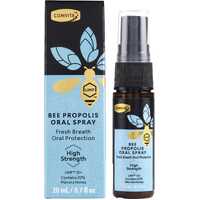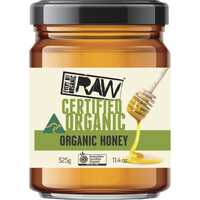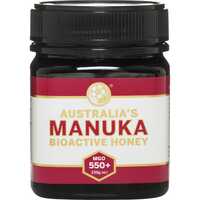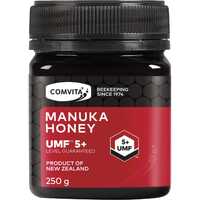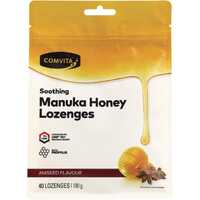Human beings enjoy a close relationship with many creatures, some of which are linked to our very survival. Despite the environmental, ethical, and health-related issues associated with animal-based agriculture, animals help to feed a huge proportion of the global population. Cows, sheep, and chickens are consumed in huge numbers across the world, and fish and seafood products contribute heavily to the collective human diet. Sometimes, however, it's the smallest creatures that make the biggest contribution of all.
Bees are small, winged insects known for their role in pollination. They're found on every continent except Antarctica, and they play an essential ecological and commercial role in food production. Bees are responsible for spreading the pollen of flowers, which is necessary for food crops and other plants to reproduce. According to the Food and Agriculture Organisation (FAO) of the United Nations, roughly a third of the world’s food production depends on bees.
Let's take a close look at bees and their intimate relationship with human survival. We'll review the history of honeybees, understand why they're so essential, and discuss the health benefits associated with multiple bee-derived products.
What are Bees?
Closely related to wasps and ants, bees are a clade within the superfamily Apoidea. There are many species of native and domesticated bees, including honeybees, bumblebees, and carpenter bees. From tiny but prolific sweat bees to large 5 cm leafcutter bees, these small but mighty creatures are very diverse and incredibly important.
Bees are found in every habitat on the planet that contains insect-pollinated flowering plants. They have evolved alongside plants, and since the birth of human agriculture, they have also evolved alongside humans. Bees have five unique characteristics that help to make them the wonderful creatures they are:
- Two large compound eyes and three smaller simpler eyes
- Multi-segmented antennae with complex sense organs
- Adapted mouth parts for chewing and sucking
- Segmented thorax with strong legs and wings
- Nine-segment abdomen, with the latter three used for the sting
When talking about the intricate relationship between bees and human health, it's important to distinguish between native bees and honeybees:
- Native bees often live alone in trees, rocks, plants, and underground homes. Most wild native bees don’t store nectar, which means they also don’t produce honey. Wild bees still pollinate native and farmed plants, however, sometimes through a vibration method known as "buzz pollination." Native bees don't build hives, and they're typically much smaller than honeybees.
- Honeybees live in groups, with thousands of worker bees ruled by a central Queen. Also known as European honeybees, these bees were developed to pollinate agricultural crops and produce honey. The common honeybee is the most important insect pollinator of agricultural and horticultural crops in the world. Honeybees are kept to produce honey, beeswax, propolis, pollen, and royal jelly.
The Long and Fruitful Bee-Human Relationship
Humans have an important relationship with wild bees that stretches back to time immemorial. Bees are responsible for pollinating the berries and other fruits that helped to keep our ancestors alive. Our relationship with European honeybees is also incredibly important, and it stretches back around 9,000 years. Human beings have kept honeybees almost as long as we've been farming — in fact, controlled pollination mirrors the evolution of human agriculture. Neolithic farmers have long kept bees to produce honey and pollinate crops, and beeswax has found value over time as a glue, cosmetic product, and medicinal substance.
Based on recent DNA analysis, the earliest honeybee ancestors may not be European at all, or even African as early studies suggested. Honeybees may have originated in Asia as cavity-nesting bees, with evidence found as far back as the 7th century BC. While beeswax-containing artefacts have been found as far wide as Europe, the Near East, and North Africa, they may have arrived from Asia roughly 300,000 years ago.
Honey has been used all across the world — by ancient Egyptians, Greeks, Romans, Indians, and Chinese. It has been taken to heal wounds and diseases of the gut, consumed as a remedy for cough and sore throat, and used to treat eye infections and other diseases. Since honeybees have been kept and controlled by humans, commercial honey products have also been available globally as a food product.
Why Bees are Essential
The link between bees and food production is well-established, with the intensive pollinating activities of bees responsible for lots of important crops. For example, apples, cherries, and blueberries are almost completely dependent on honeybee pollination, as are almonds, oranges, and avocados. According to Greenpeace, around 70% of the human food supply depends on pollination, with these crops representing 90% of the world's nutrition. While pollinators include birds, bats, and insects, native and domestic bees account for around 80% of this pollination. As they are the most efficient and easy-to-manage global pollinator, the health of bees is closely linked to the future of humanity.
Bees perform a range of related functions, carrying pollen between plants to fertilise them, distributing pollen to different parts of the same plant, and helping plants to survive by preventing inbreeding. Along with pollination, bees are considered edible insects themselves, with bee larvae and bee brood consumed in many Asian cultures. Bees also produce a variety of nutritious edible substances, many of which can be considered dietary supplements. From the many unique forms of honey to bee pollen, propolis, and royal jelly, bee-derived products offer a range of potential health benefits.
Are Bees in Danger?
Over recent years, lots of attention has been given to the plight of bee populations. Native and domestic bee numbers are falling dramatically in some parts of the world, which presents a real risk to food production and the wider global ecosystem. According to a study published by Yale, "declining bee populations pose a threat to global agriculture." Since the turn of the century, there have been annual hive losses of 30% or higher, with the number of bee colonies per hectare having declined by 90% since 1962.
According to Greenpeace, this decline is due to many factors, including drought, habitat destruction, nutrition deficit, air pollution, and global warming. The proliferation of industrial-grade pesticides is also a huge concern, with more than 150 different chemical residues found in some bee pollen studies. There is a growing movement towards organic and responsible farming around the world, with traditional farming practices increasingly re-introduced to boost bee numbers.
Types of Bee Products & Their Benefits
When people think of bees, honey is the first thing that comes to mind. While bee stings also have a pretty strong reputation, it's the delicious amber fluid made by bees that really captures the attention. There are many different types of honey available, with various production, preservation, and adulteration methods known to influence its taste and health properties.
There are several health benefits associated with honeybee-derived products, such as honey, propolis, and royal jelly. From tasting sublime and enriching other foods to treating various diseases, bee products continue to have a profound influence on human culture. The following bee products are the most popular:
The Health Benefits of Honey
Of all the bee-derived products consumed by human beings, honey is the most popular by far. Honey is a sweet and delicious food substance made by honeybees and some native bee populations. The sweetness of honey comes from fructose and glucose, both of which provide lots of food energy. Honey contains 82% carbohydrates and 17% water, as well as minimal fat, dietary fibre, and protein content. Honey is less processed and more nutritionally complex than many sugar products, which helps to make it a popular sugar substitute.
Honey is also attractive as a preservative, with most microorganisms unable to grow in this viscous substance. When honey is properly sealed, it simply does not spoil, even after thousands of years. Honey is a powerful topical antibiotic, a folk treatment for burns and skin wounds, and a popular ingredient in many cough medicines. Different types of honey have their own colour, composition, flavour, and aroma. These differences largely depend on the flowers foraged by the bees, along with the preparation and preservation methods applied.
The Health Benefits of Propolis
Propolis is sometimes called “bee glue”, which is a pretty accurate description of what it does and where it comes from. The word “propolis” is derived from the Greek “pro” or city, and “polis” or beehive. It's used to seal holes and cracks, and helps to smooth the inner surface of the hive. Propolis is also consumed by humans, due to its rich nutritional profile and many potential uses in treating various diseases.
Propolis contains 50% resin, 30% wax, 10% essential oils, 5% pollen, and 5% other organic compounds. Propolis has a range of antiseptic, anti-inflammatory, antioxidant, antibacterial, antimycotic, antifungal, anti-ulcer, anticancer, and immunomodulatory properties. Due to these properties, it has reported health benefits for issues as diverse as allergies, gastrointestinal disorders, oral problems, gynaecological issues, and dermatological problems.
The Health Benefits of Royal Jelly
Royal jelly is a white, viscous, jelly-like substance and gland secretion from worker bees. This bee “superfood” is mostly consumed by the queen bee, and it's also fed to honeybee larvae upon hatching. Humans can also consume royal jelly to benefit from its rich nutritional profile.
Royal jelly consists of 50-60% water, 18% proteins, 15% carbohydrates, 3-6% lipids, 1.5% mineral salts, and many vitamins. Royal jelly is widely consumed as a dietary supplement, and it's also taken to help combat specific conditions. It has a range of antibacterial, anti-tumour, anti-allergy, anti-inflammatory, and immunomodulatory effects, and it may prove useful against a range of diseases.
If you would like to consume high-quality bee-derived products to boost your health, you've come to the right place. At Healthy Being, we have a fantastic range of honey and other bee products in stock, with everything made from high-quality ingredients. So visit our website today and enjoy free shipping options across Australia and worldwide delivery!


 Certified Organic
Certified Organic Vegan Friendly
Vegan Friendly  Vegetarian
Vegetarian Organic Ingredients
Organic Ingredients Dairy Free
Dairy Free Gluten Free
Gluten Free Keto Friendly
Keto Friendly


























